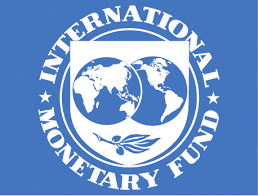 WASHINGTON: India has said the IMF, World Bank and other international organizations must develop and articulate a clear strategy for enhancing public debt transparency to mitigate the rising debt vulnerabilities of low-income countries.
WASHINGTON: India has said the IMF, World Bank and other international organizations must develop and articulate a clear strategy for enhancing public debt transparency to mitigate the rising debt vulnerabilities of low-income countries.
In an apparent move to address the issue of debt trap being faced by low-income developing countries (LIDCs), to which China’s “predatory economics” is playing a significant role, top officials of India, the US and Britain used various platforms here during the annual Spring Meeting of the IMF and the World bank.
Economic Affairs Secretary, Subhash Garg, who is leading the Indian delegation in the absence of Union Finance Minister Arun Jaitley, raised the issue at the G-20 meeting of finance ministers. The finance ministers of the US, France, Germany and Britain also highlighted the issue in their address to the IMF.
Expressing concern over the rising public debt vulnerabilities in LIDCs, Garg, in his address to G-20 stressed that increasing debt burden in LIDCs is, “clearly, a massive hindrance” in addressing the Sustainable Development Goals.
LIDCs face challenges centered on equitable growth, resilience, finance and partnerships, and leveraging external public and private finance, he said.
To mitigate the growing debt concerns of LIDCs, he said the IMF and the World Bank and other international organizations must “develop and articulate a clear strategy for enhancing public debt transparency on both the debtor and creditor side.
He also emphasized on the need for strengthening bilateral and regional financing agreements.
US Treasury Secretary Steven Mnuchin called on the IMF and the World Bank to develop a joint action plan on debt transparency and sustainability.
“We call on the IMF and World Bank management to develop a joint action plan on debt transparency and sustainability to guide future work, ensure strong coordination between institutions, and boost visibility around these efforts, he said.
The action plan should include concrete steps to obtain more comprehensive debt data from member countries, to more clearly flag data deficiencies in debt sustainability analyses, and to enhance debt sustainability through strengthened use of debt limits and non-concessional borrowing policies, Mnuchin said.
Mnuchin said the rise of official bilateral, “plurilateral”, and private creditor lending, especially to countries at high risk of debt distress, is complicating debt resolution processes necessary to re-establish debt sustainability.
“Increasingly we see instances where low Income countries have borrowed excessively, and unsustainably, from large, often non-transparent emerging sovereign creditors like China or private creditors, he said.
Clear restructuring rules do not exist for these cases, creating the risk of a complicated restructuring process, creditor losses, and a decline in real median incomes in the debtor country, the Treasury Secretary rued. PTI






